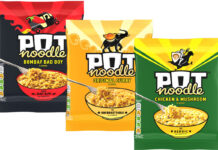The price of milk has been hot news for many months, not least because of protests by dairy farmers – who say they’re being paid less than the cost of production – including high-profile action in Scotland.
But crashing supermarket and discounter milk prices hurts others too.

Milk is a daily essential item that would normally be a bedrock item for local c-stores.
Many c-stores, including symbol group members and others, who have been working with wholesalers and buying groups, have been competing as vigorously as possible – by offering low prices, including round-point price points on products they’ve pitched as “fighting lines”.
But that hits profitability, of course. And it remains difficult to compete with supermarkets and discounters who have taken four-pint and 2-litre packs to under £1, sometimes as low as 79p.
But, while some giant retailers have only recently been reported to have agreed to pay more to farmers, the organisation that represents many of the biggest chains, and other retailers, has said the supermarkets aren’t to blame for producers’ problems.
David Lonsdale, director of the Scottish Retail Consortium, said: “Declining worldwide demand for milk, coupled with a stronger pound, the ban on food exports to Russia and an increase in supply to a 20-year high has led to a reduction in the prices farmers are receiving.
“Our grocery members have a strong record of both sourcing dairy products in Scotland and helping consumers to make a choice when they want to buy Scottish or British through clear country of origin labelling.
“Some individual grocery retailers have reduced the price of milk charged to consumers in store but those retailers alone are paying for the price reduction – not the dairy processors who they buy from and not farmers.”






















